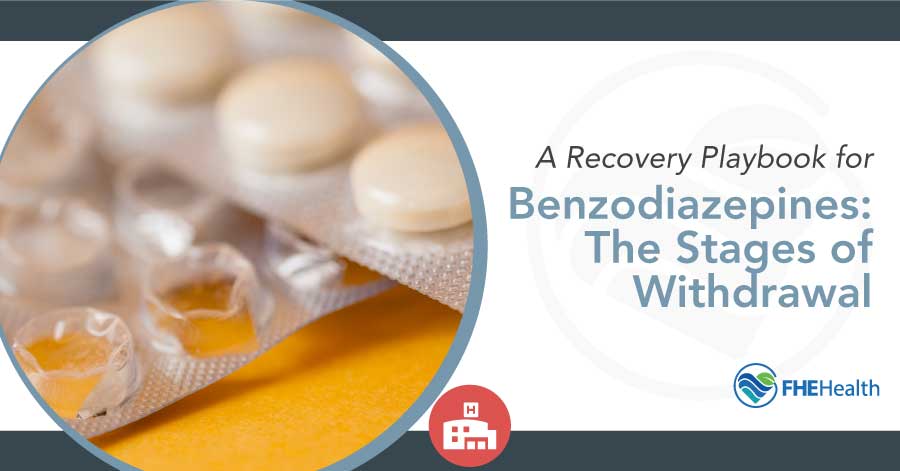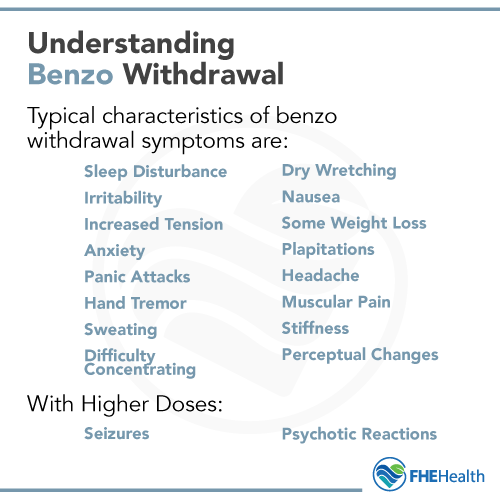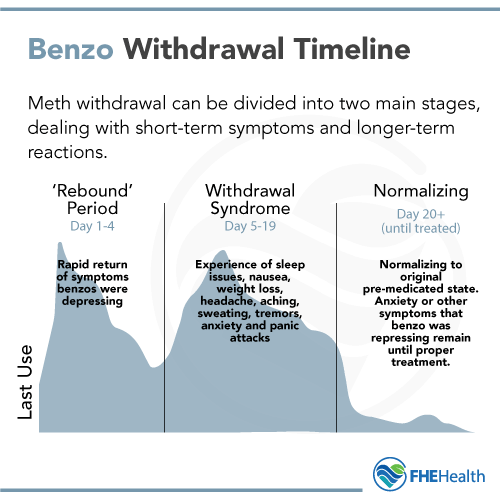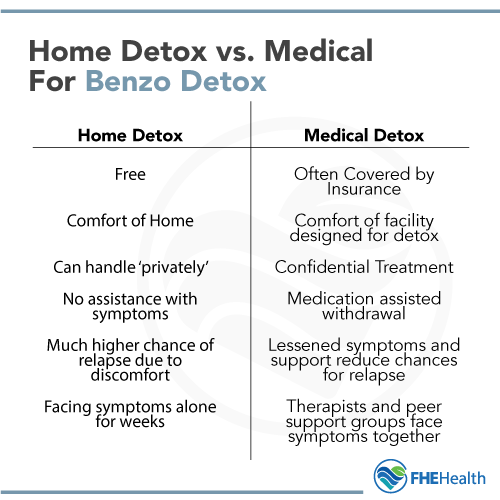
Benzodiazepines are a versatile medication with the ability to treat multiple symptoms by affecting the central nervous system. The broad group of drugs that comprise benzodiazepines can target different functions, act at different speeds, and affect the body for varying lengths of time. Due to each of our unique metabolizing rates and interactions with pharmaceuticals, they don’t always have the same effect on each user.
While this drug does have many useful implementations under physician supervision, Benzos, or benzodiazepines, also carry the risk of being a highly addictive substance. As a result, addiction to this drug can occur within a handful of uses and only worsen from there. Once dependency sets in, withdrawal can occur when you try to stop using. Understanding the benzo withdrawal timeline gives you insight into what to expect.
How Benzos Create Dependency

Because it creates this type of euphoria and calming and feel-good result, benzos are highly addictive. The changes they create in the brain can make it very enticing to continue to use them. Over time, the body becomes dependent on the substance to function even at a normal level, making more benzo use necessary.
This drug may feel good, but it has numerous negative consequences. As noted by the U.S. National Library of Medicine, these drugs are known to cause dependency and cognitive decline over time, making using them very difficult to manage.
Common Benzos Abused
Benzos are still prescribed by doctors. Sometimes, they are prescribed alongside pain medications such as opioids, which further increases the risk of dependency. Some of the most commonly abused benzos include:
- Ativan, lorazepam
- Xanax, alprazolam
- Klonopin, cloneazepam
- Librium, chlordiazepoxide
- Valium, diazepam
- Restoril, temazepam
- Halcion, triazolam
These drugs tend to be readily available because they are used so routinely in the treatment of a variety of disorders and symptoms. They are often used to treat anxiety disorders such as panic attacks and can be used to help with seizure management and to relieve insomnia. They are also available on the black market. They are sometimes called sleeping pills, downers and tranks.
What Happens When a Person Stops Taking Benzos?
Benzo dependency happens when a person has to have the drug to function on a day-to-day basis. Without it, they may have extreme levels of anxiety or irrational thoughts. The definition of dependency is having withdrawal symptoms when you stop taking it. With benzos, this can create a very uncomfortable experience, and in some cases, it can cause a very dangerous outcome.
The Onset of Withdrawal from Benzos
What does benzo withdrawal feel like? When a person stops using benzos even for a short period of time, they’re sure to feel some significant changes if they have a dependency. Within four to six hours of stopping the drug, a person can become agitated and anxious. They may even start to panic. Most will be unable to think of anything else except getting another fix of the drug.
Over the next few hours, this progresses further. It may include an increasingly rapid heart rate, higher blood pressure and sweating. Some people feel nauseous; others may feel flushed or faint. These are all reactions the body creates to encourage a person to seek out more of the drug. During those first few hours and leading into the first full 24 hours, increasing confusion and an overwhelming desire to obtain more of the drug are both likely.
High Risks of Benzo Withdrawal

- Changes in perception
- Problems thinking clearly
- Painful headaches
- Muscle pain, especially cramping or stiffness
- Panic attacks
- Excessive sensory stimulation – feeling as though everything is painful around you
- Changing in breathing pattern, being unable to catch your breath
- Seizures
- Delirium tremens like symptoms
- Loss of consciousness
If these severe withdrawal symptoms occur, a person needs medical supervision. The risk of these types of withdrawal symptoms is so high when coming off benzos that people shouldn’t try to detox outside of a medical facility.
Continued Withdrawal Symptoms
Over the first 24 to 48 hours, a person is likely to experience intensifying symptoms or cravings for the drug. This may include irrational behavior that encourages a person to seek out the drug at all costs. Most people will continue to experience the following symptoms over the course of several days:
- Headaches
- Racing pulse
- Nausea, sometimes including dry heaves
- Difficulty concentrating
- Tremors
- Weakness
- Extreme fatigue or, in some cases, the inability to sleep
- Rebound anxiety
- Sweating
The intensity and length of time that a person experiences these types of withdrawal symptoms ranges from person to person. However, they typically will last for several days and up to a week, slowly improving. However, some individuals can suffer a serious setback such as a seizure even weeks later.
Keep in mind everyone’s reaction to benzo withdrawal is different. There’s no way to know what will happen to you until the process begins.
Why a Medical Detox May Be Ideal for Many

In addition, doctors also can provide intense support for the pain and emotional difficulties that happened during the benzo withdrawal period. They can help minimize symptoms to make it more likely you will continue on with your recovery. For those trying to quit benzos at home, on the other hand, the intensity of cravings may make it nearly impossible to truly stop using them.
How Medical Detox Can Help You
If you’ve used benzos for several years or used a significant dosage of them for several months, medical detox can be necessary. If you try to stop taking the drug for a day or so and begin to feel you need the drug at a level you can’t easily control, it’s also beneficial to turn to detox.
Not everyone who has taken a benzodiazepine prescription needs detox assistance — most people who follow their doctor’s directions for usage don’t. If you are taking more than prescribed, however, it may be time to get some additional help.






